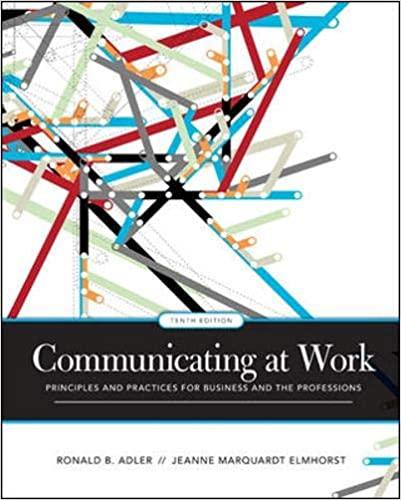1. Some critics of the no laptop policy argue that people are most likely to retreat into...
Question:
1. Some critics of the “no laptop” policy argue that people are most likely to retreat into technology when meetings are worthless. They claim that if meetings were called only for good reasons and were managed well, attendees would pay attention.
How valid do you think this observation is? It’s no surprise that meeting-goers in high-tech environments like California’s Silicon Valley often bring along and use digital communication devices—laptops, Blackberries, iPhones, Sidekicks, and a host of other gadgets.
Multitasking device users suffer from what one observer calls “continual partial attention.” An industry insider describes the problem: “One of my biggest frustrations when I was an engineer at Google was being summoned to an executive meeting only to find three-quarters of the executives too busy with their laptops. I’d spend hours preparing a summary of my project status, a briefing on a new strategy area, or a review of staffing assignments. Nothing communicates disrespect to your reports like ignoring them when they’re with you.”
In an effort to stem this problem, a growing number of firms in the information economy and beyond have declared a ban on mobile devices in meetings. For example, San Francisco design firm Adaptive Path encourages staffers to leave their laptops and other devices behind when they attend meetings. John Vars, co-founder of San Francisco’s Dogster.com , explains the logic of his company’s policy on device-free meetings: “Even if people are just taking notes, they are not giving the natural human signals that they are listening to the person who is speaking. It builds up resentment. It can become something that inhibits good teamwork.”
Step by Step Answer:

Communicating At Work Principles And Practices For Business And The Professions
ISBN: 9780073385174
10th Edition
Authors: Ronald Adler, Jeanne Marquardt Elmhorst






